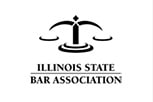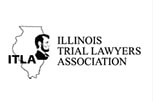The Causes of Wrongful Death in Nursing Homes

Humans are frail, and our frailties become ever more evident as we grow old and require care and treatment within what are supposed to be the safe and comforting walls of America’s nursing homes. The tragic reality is that not all nursing homes care for their patients and a growing number of senior citizens are dying not of old age, but from mistreatment and neglect at the hands of nursing home personnel. The National Center on Elder Abuse estimates that over two million people suffer nursing home abuse every year. Women make up the most vulnerable group with up to 67% experiencing abuse at some point during their stay in a nursing home facility. Of those reporting abuse, the median age is just 78 years old.
Nursing home abuse can take many forms including the deliberate neglect of a patient’s care by denying them the food, water, and medical treatment they require to remain healthy. The NCEA estimates that up to 59% of seniors will experience blatant abuse or neglect within a nursing home. It is a significant issue as neglectful care and direct abuse can exacerbate existing medical conditions and make a senior’s recovery difficult, if not impossible. It has a detrimental impact on mortality rates and many wrongful death suits filed by Chicago wrongful death attorneys cite abuse and neglect as primary or contributing causes in the patient’s death.
One particular type of neglect involves the risk of patient falls which are happening at an increasing rate. The National Institute of Health estimates that 1,800 people die each year from falls within nursing homes. These result when facility staff fail to maintain, clean, or dry floors. These falls can also involve failing to pick up patients and return them to their wheelchairs or beds when they do fall, thus exacerbating their injuries and increasing the likelihood that their fall will become fatal. another factor leading to patient falls is the failure of staff to properly secure patients to wheelchairs and gurneys which patients can quickly fall out of if they are not correctly secured.
Physical abuse also a growing complaint. Roughly 16% of seniors report being physically abused by staff in the past year. This abuse includes pushing, shoving, kicking, or hitting a patient. As most nursing home staff are far younger and stronger than their elderly patients, this type of abuse is often used to instill fear, demand compliance, or assert authority. In many cases, the bruises, bones, and emotional health of the patient never recover from physical abuse and it can easily lead to a wrongful death. This type of abuse is also believed to be significantly underreported as many patients fear the abuse worsening should they file formal complaints against their abusers.
In addition to neglect and physical abuse, medical malpractice within nursing homes is on the rise. This includes failure to diagnose illnesses, failure to prescribe proper medication, and not ordering diagnostic tests that could diagnose underlying medical conditions. Other causes include poor training of staff, failing to identify drug interactions, and abusing medical restraints. Medical malpractice can lead to the deterioration of a patient’s health and the wrongful death of the patient.
Other types of medical malpractice can increase the risk of infection. Failure to dispose of needles and properly sterilize equipment in compliance with regulations can increase a patient’s risk of acquiring HIV, Vancomycin-Resistant-Staphylococcus Aureus, sepsis, flu, or Methicillin-Resistant Staphylococcus Aureaus. Once acquired, these become very difficult, if not impossible to treat, thus leading in the wrongful death of the patient.
Finally, one of the least discussed contributing factors to wrongful death in nursing homesrevealed by the NCEA survey is the fact that seniors are particularly vulnerable to emotional abuse. Emotional abuse can take many forms and can include insults from staff and denying visits from family members, to not allowing patients visit and socialize with their friends. Roughly 7% of patients report having experienced emotional abuse in the past year. This is a particularly nefarious type of abuse as it has a considerable impact on a patient’s mental health which can lead to depression. This negatively impacts a patient’s immune system and their ability to fight off infections, which in turn reduces their quality of life and their overall life expectancy.
Each of these types of abuse and actions can be direct or contributing factors in the wrongful death of a loved one. With over 30% of nursing homes being cited for these types of abuses, it is imperative for families and friends to pay close attention to the care of loved ones within nursing home facilities. Doing so is the best way to ensure that a case of abuse doesn’t lead to an early grave for the people they care about.




